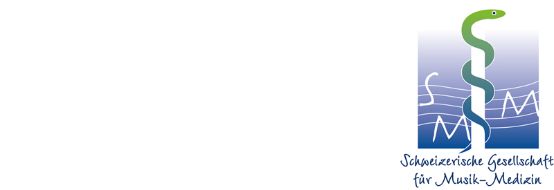Mental training in music professions
The SMM is celebrating its 20th anniversary with its 15th symposium on October 28 at the Zurich University of the Arts (ZHdK). It will be focusing on interdisciplinary impulses for mental training.

SMM - In recent decades, musicians have come to realize that self-help concepts are of great importance in both professional and amateur circles. As Horst Hildebrandt, Head of Music Physiology at Zurich University of the Arts (ZHdK), will explain at the symposium, this applies both to common musculo-fascial complaints and to psychosomatic stress situations. According to Hildebrandt, the activation of individual psychophysical resources is playing an increasingly important role in promoting health and dealing constructively with job-specific stress.
Markus Weber, Head of the Muscle Center/ALS Clinic at St. Gallen Cantonal Hospital, will talk about the highly complex neuronal processes involved in making music and their disruptive factors. These include impairments of concentration, attention and memory as well as chronobiological aspects (working hours), pharmacological influences (medication) and psychosocial stress.
Maja Storch, Director of the Zurich Institute for Self-Management and Motivation (ISMZ), will show how an innovative form of goal formulation helps people to act more and more often in the way they would like to: so-called motto goals are an element of the Zurich Resource Model (ZRM), a self-management training program that systematically involves the unconscious. It succeeds in addressing the unconscious directly and feeding the intention to act into it.
In a fourth lecture, mental coach Reinhold Bartl - he is head of the Milton Erickson Institute Innsbruck - will present hypno-systemic concepts, training tools for "developing your own coherence in demanding professional contexts".
Two workshops round off the program: Reinhold Bartl will show how musicians can deal with irritations (discords) in their professional development in a meaningful way, both in individual situations and with a view to "form crises" in everyday life, during practice, rehearsals and concerts. Finally, Berlin doctor Giovanna Eilers will provide insights into the practical application of the CRM self-management method to complement Maja Storch's presentation. Anyone who wants to can try this out for themselves in the workshop for their own topic.
The one-day symposium, which runs from 10 a.m. to 5 p.m., will be chaired and moderated by SMM President Martina Berchtold-Neumann.
More information and a registration form can be found on the web at:








